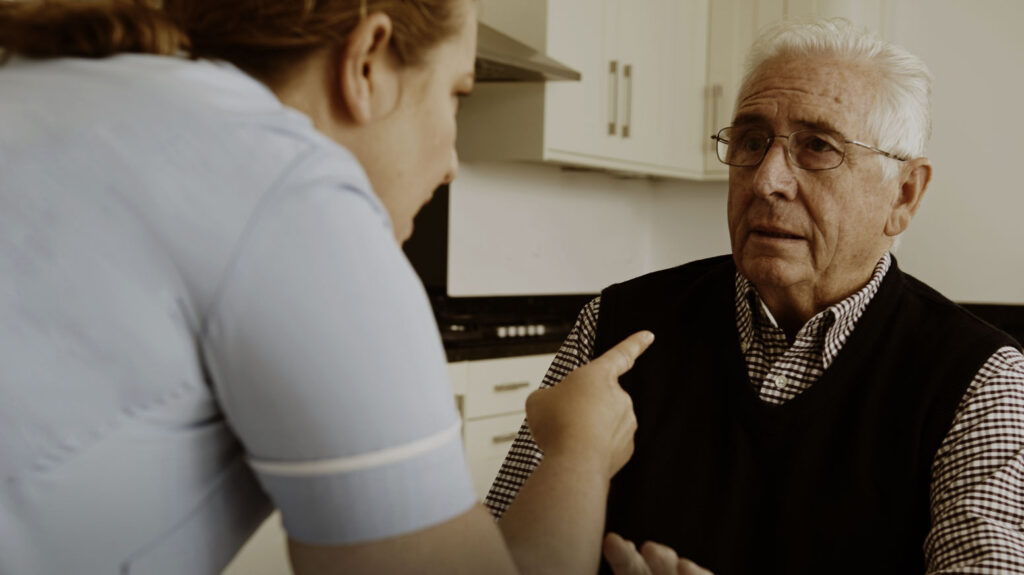Colchester Nursing Home Neglect
Need a Colchester Nursing Home Neglect lawyer?
If you or a loved one suffered nursing home neglect—you may be entitled to compensation. Nursing Home neglect claims can be complex, but Etemi Law has the experience to guide you through it. We’re committed to helping nursing home neglect victims get the justice and compensation they deserve.
Call us today at (203) 409-8424 for a


The Reality of Nursing Home Neglect
A nation’s greatness is measured by how it treats its weakest and most vulnerable members. Over time, elder care in America has shifted—from the hands of loving families to the hands of large corporations. And while corporations prioritize profits, the care of our elderly too often becomes secondary.
Today, thousands of long-term care facilities across the U.S. house millions of elderly residents. Tragically, neglect, abuse, and injuries are a persistent—and growing—problem. As your trusted Colchester nursing home neglect lawyer, Etemi Law is here to protect your loved ones and hold negligent facilities accountable.
What Is a Nursing Home Neglect Lawsuit?
A nursing home neglect lawsuit is a legal action taken when a long-term care facility fails to provide the standard of care that the law requires, resulting in injury or death to a resident. As your Colchester nursing home neglect lawyer, Etemi Law handles cases involving:
Bed sores and pressure ulcers due to failure to monitor, treat, or diagnose wounds
Over-medication used to chemically restrain or sedate residents
Assaults, including those by staff or other residents
Falls and injuries caused by inadequate supervision and safety measures
If your loved one has been harmed due to a facility’s negligence, you may have grounds for a lawsuit. A knowledgeable Colchester nursing home neglect lawyer from our team can help you take action.
Who Can File a Nursing Home Neglect Claim in Colchester?
In Connecticut, the resident themselves (if capable) or their legal representative—such as a guardian, conservator, or estate executor—can file a claim. In the case of death, surviving family members may receive compensation.
An experienced Colchester nursing home neglect lawyer from Etemi Law will:
✅ Review medical records and facility documentation
✅ Coordinate with healthcare and elder care experts
✅ Determine liability and identify responsible parties
✅ Handle probate and legal procedures, if needed
You focus on your loved one’s safety—we’ll handle the legal fight.
What Damages Can a Colchester Nursing Home Neglect Lawyer Help You Recover?
Neglect in nursing homes can lead to serious physical and emotional harm. Compensation in a successful case may include:
Costs for medical treatment and rehabilitation
Pain and suffering of the resident
Loss of quality of life and emotional trauma
Funeral and burial expenses, if neglect led to death
Punitive damages for gross misconduct or abuse
Our role as your Colchester nursing home neglect lawyer is to ensure your family receives the justice and financial relief you deserve.
Why You Need a Colchester Nursing Home Neglect Lawyer
Nursing home corporations and their insurers often attempt to downplay or cover up abuse and neglect. They may offer low settlements that don’t reflect the seriousness of the harm done.
With Etemi Law by your side, a skilled Colchester nursing home neglect lawyer will:
Investigate all aspects of the incident
Preserve critical evidence, including surveillance and logs
Coordinate with health authorities and regulatory agencies
Aggressively negotiate—or take your case to court
We fight for the dignity and rights of every elder who has been harmed. We do not back down.
Contact a Trusted Colchester Nursing Home Neglect Lawyer Today
If you suspect that a loved one is being mistreated in a nursing home, take immediate action. Report the abuse to the appropriate authorities—and contact Etemi Law without delay.
📞 Call
📨 Email us directly
💻 Submit our Free Case Evaluation Form
Let a dedicated and compassionate Colchester nursing home neglect lawyer at Etemi Law protect your loved one’s rights and help you seek full and fair justice.
As Colchester’s small-town evenings fill for seasonal festivals and occasional weekend concerts, the nursing homes near Colchester Town Green feel the ripple: extra foot traffic, later family visits, and the strain of evening transfers. I’ve watched staff juggle admission paperwork and night-shift handoffs while visiting relatives stream into the green after dark. Those patterns often correlate with more nighttime falls, agitation episodes, and late transport requests that complicate in-house care and discharge planning.
Route 2’s evening flow and the nearby junctions funneling festival traffic change ambulance ETAs and the calculus of interfacility transfers. Speed and congestion on these stretches influence whether patients go directly to an acute hospital or are stabilized locally before rehab placement. From my reporting, delayed transfers commonly lengthen hospital stays and shift rehabilitation timelines — a material concern for families tracking recovery milestones and for clinicians coordinating therapy starts.
When 911 calls arrive, Colchester Fire Department crews are often the first clinical presence on scene—performing on-site assessments, arranging ambulance lifts, and briefing receiving facilities. Their response times and the region’s mutual-aid agreements shape whether an elderly resident is moved immediately or requires on-site stabilization. I’ve observed that clear handoff communication from firefighters to emergency department teams reduces duplicate testing and speeds appropriate rehabilitation referrals, even if the initial injury requires prolonged inpatient care.
Bacon Academy and nearby parking lots swell during fairs and evening sporting events, sending staff and visitors through narrow side streets and sometimes into detours that push transfer vans onto longer routes. That local geography affects therapy scheduling, outpatient follow-ups, and the timetables for short-term rehab placements. In Colchester’s close-knit community, understanding these local rhythms — from parking pinch points to late-night pedestrian crossings — helps families and providers set realistic expectations about timing, not outcomes.
